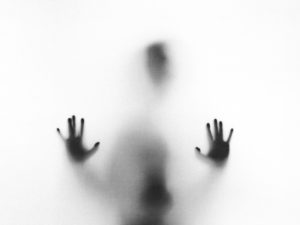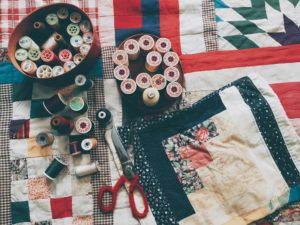I’m currently reading The Intuitive Way by Penney Peirce. Various notes and bookmarks remind me I’ve started it before, but I didn’t finish it. I picked it up again because I’m also reading The Gift of Fear by Gavin de Becker (for the second time), and he talks about how important intuition is in our ability to avoid danger.
I’ve always been interested in intuition. What is it? How does it work? I know from personal experience it’s a real kind of perception or knowing, but I also know many people view it as “woo” and scientifically unprovable. I’ve frequently been met with fury and denial when I voiced an intuition about someone’s state of mind or behavior. Certainly I might be wrong, but then why all the fuss?
As I began writing this post I explored Peirce’s website for a few minutes. I listened to an interview and read a couple of her posts. Yes, it looks rather New Age and “woo” to me.
On the other hand, that doesn’t mean she’s wrong!
As a matter of fact, science is catching up to what we call intuition. Scientists and researchers like Paul Ekman, who recognized how important fleeting micro expressions and body language are, have begun to assemble the neurological pieces of the process of intuition. Experts in their own fields like de Becker are revisiting the importance of intuition to our resilience and survival.

In any event, I picked up The Intuitive Way again to see if it was something I wanted to work with and explore or pass on to the library for donation. I’m glad I did. I’m uninterested in debating whether intuition is real or a worthy subject for study, but I’m very much interested in any tools which might assist me in healing and living a more joyful life and/or shaping my creativity. The book is filled with provocative writing exercises. I remember now it takes me ten minutes to read a chapter and ten days to play with all the exercises.
When I learned emotional intelligence I was introduced to the work of Byron Katie. Her great question is: Who are you without your story? Peirce’s book asks the same question in a slightly different way, providing exercises challenging the reader to replace fearful, limiting beliefs with those that are loving and life-enhancing.

Who am I without my story? What a wonderful, important question. What a game changer. It’s like asking ourselves who we are if we stand bodiless in some infinite but undefined space with no memories, no objects around us, and no other context. If we’re not a name; an age; a family member; a job; an ethnicity and tribe; a set of beliefs, experiences, memories and stories, then who the hell are we?
My mind boggles, and the artist in me salivates. So much of my self-identity is bound up with stories about my life and experience, and many of those stories are small, hard, stony things about breaking, severing, smashing, exile and futility.
I have fantasies about who I’d like to be and how I’d like to feel, of course. They’re fantasies, though, not the real story. I know the difference.

But do I?
We write our stories from our feelings and experiences, many of which occurred in childhood. Do children necessarily see a wide picture? Are they able to understand all the behavior and choices of the adults around them? Are they able to process their feelings and separate them from their thoughts about their feelings?
I doubt it. I certainly wasn’t able to.
As we grow up, we have opportunities to compare our stories with those of our siblings, or others who inhabited our childish world, and we notice our stories aren’t the only ones in the mix. Everyone has a story, and they aren’t the same one. A word or event burned in my brain might be something no one else even remembers.

Stories are slippery things, powerful as an anaconda and just as hard to pin down.
All that being so, how would it be to simply erase the limiting parts of my story ,to find the file, open it, hit “delete” and then empty the trash of all the feelings, conclusions and thoughts my story carried? No more story. Just a clean space …
… In which to write a new story!
As a storyteller, I’m fascinated by all the creation stories from around the globe. As a writer, I’ve even written a couple of my own. I’ve never considered writing a story about my own creation before, though. After all, I already know all about the story of my first ten years. I’ve been telling it to myself for decades. It’s shaped me profoundly.
But would a different story have shaped me differently?
Would a different story shape me differently now?
I don’t suggest we deny or bury our feelings and memories. I’ve never found that particularly useful. I think of my story as an old-fashioned quilt, carefully pieced together out of all kinds of scraps of feelings, memories and experiences from which I formed conclusions and beliefs over my lifetime.

I can lift that quilt out of the cedar chest of my psyche, unfold it, hang it on a clothesline in the sun and spring breeze and examine it. Which pieces make me feel stained, frayed, torn or damaged? Which pieces are vibrant, vivid, gorgeously colored and textured?
After the quilt has aired, I can unpick stitches and remove the pieces that hurt, distort or limit me, replacing them with scraps that make me feel happy, confident and loving. I can rewrite some of those childhood monsters and villains, understanding now people are complex and we don’t always know their motives or secrets. I can consider painful pieces of my story from the view of another character in it instead of from my own narrow perspective. As I unpick stitches and loosen up my old story quilt, I can think about forgiveness, gratitude and being wrong, and revel in stitching new patterns and colors into it.
Rewriting our story, like reworking a quilt, takes time. Writing our original story took time. Events happened in our lives. We had feelings and experiences. We had thoughts about our feelings and experiences. We came to certain conclusions about who we are, who others are and how life works. We wove a story and told it to ourselves over and over again, until we believed it completely and it became unconscious. We carry our story with us into the world and it influences every choice and action.
The thing about story is it’s limited and limiting. It can never catch all of reality, even in a single moment. If we understand this and work to bring our personal stories back into consciousness, we become aware of all the ways our stories hurt and/or help us. They can limit and paralyze us or inspire us with courage and confidence. It’s all up to us, because we are the authors of our own stories. We have the power to rewrite.
Many cling to their stories as though they were a matter of life and death, not to mention identity. I’ve noticed some people with miserable stories cling the hardest. I can only conclude for some, even the most wretched and harrowing story provides some kind of a payoff for the one holding it. Such a person doesn’t want to rewrite their story, in spite of how ineffective or painful it may seem to be.
I choose not to be run by my story. I can do, be and contribute more than parts of my old story say I can. I don’t want to validate and reinforce outdated conclusions that made me fearful and small. I don’t want to continually irritate and open up old wounds.
I refuse to be a victim, especially not a victim of myself!
So I’m rewriting and revising my own creation story from before the beginning, when two cells joined and created the miracle of my life. From those two cells came the complex human being I am, and a complex human being contains and creates many different kinds of stories with many different feelings, experiences and thoughts.

© 2019 – 2022, Jenny Rose. All rights reserved.